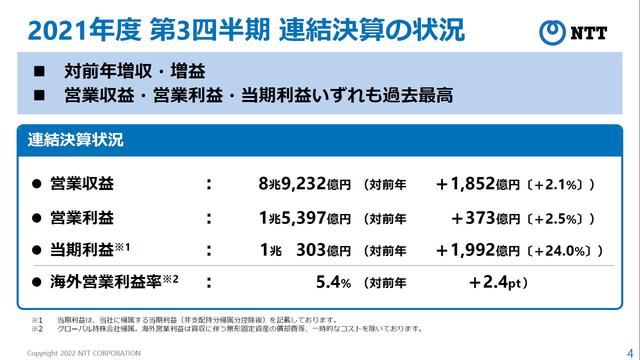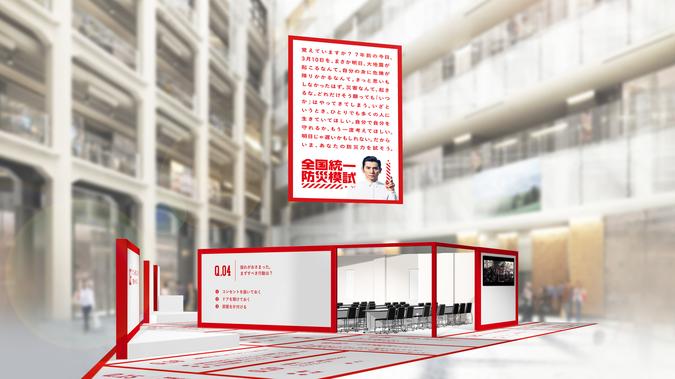A feeling of refusal to the word "salt" ... Koreans do not order "salt ramen" "It is difficult to translate" Koreans never order "salt ramen".
* This article is a re -edited part of the Cincensive's "Japanese line" (Fusosha Shinsho).
■ Old Korean food is not spicy
It was a while ago that the terrible new colon virus became a big problem.I always use miso ramen or tonkotsu ramen, but on that day I don't know if the devil's mischievous god guidance, but for some reason I ordered salt ramen.
As I remember, it is probably the first salt ramen in my life.The reason why I didn't eat it as it was, I felt that the word "salt" was rejected.But if you try it, it's delicious.It was really delicious.If it was so delicious, I thought I should have eaten faster.
Of course, it depends on the dishes, but as a general theory, if you add "salt" for food and taste in Korea, it will show a terrible taste.Where and what I made, Korean food today often sells spiciness, but in fact the traditional taste of Korean cuisine is to boil the ingredients and release the juice.The taste was not so strong.
■ Bibimbap and Guppa were meals for low -ranking people
This is also related to the history of the Korean Peninsula, which had severe polarization, such as status system, rapid industrialization, and concentration of Seoul.The people in the upstream layer thought that gaining juice could get good ingredients for the body.
In the past, various medicines were boiled and the juice was used as a medicine.There was the idea that the medicine was not effective unless you could keep your heart in the boiling process.It was the job of a woman, especially the patient's wife, and was criticized for being a woman who was boiled if it had no effect on the medicine.In Korea, this is "lack of pity."Boiling the medicine was a kind of prayer.
There are similar ideas in cooking, and it is said that dishes that add high -quality ingredients such as Gook (soup) and tongue (hot water) in water and boil them in water are good for the body.I did it.It was not as simple as it is now, but it is something like Samgyethane or Calvitan.
Conversely, the poor and poor people made soups by putting ingredients in water to mix all the ingredients or simply increased the amount.Depending on the quality of the ingredients, the former is bibimbap and the latter is a gupping.Nowadays, Korean cuisine has the image of "mixing", but in fact, mixed was the way of eating low -ranking people.
■ "Salt soup" is a idiomatic expression that has a terrible taste
But in the worst case, some people couldn't even make such an appropriate soup.Cooking that boils the ingredients and put out the juice can give various flavors by adding good ingredients, but if you do not have ingredients that can be used as ingredients, it will be difficult to leave if it is delicious and even give out the taste itself.。In addition to really increasing the amount, it doesn't make sense to make a soup.
Needless to say, when there was a status system, there were many people who could only eat such a meal in the 1960s and 1970s, when the Korean War was over and the economic development of the capital city of Seoul was concentrated in Korea.did.In that case, add salt in a small soup dish and give it a taste.This is because you can't get the taste even if you boil it with just the ingredients.
The overwhelming tasting is intense, and in Korea today, it is called "salt soup (sogm cook, 소금국)" and remains as a customary expression of severe taste.In one word, it is a poor seasoning.I don't know if it's just a matter of such an image, or it's just a matter of taste, but in Korea, white salt comes out with food besides some tongue (hot water) dishes that have a thin taste and have to add salt.It rarely comes.
Nevertheless, when I was still a student, I usually eat food, such as boiled eggs, etc. with white salt, but now, from fried chicken to boiled eggs, almost definitely seasoned with massogum.Comes with salt.

■ Salt itself is not delicious in Korea
On the day I ate salt ramen, I thought that the meaning was so different between Japan and South Korea.More fundamental stories, Japanese salt is usually delicious.Not only ramen using salt sauce, but also salt itself is sometimes very delicious when put on your finger.
This is something I did not experience much in Korea.It is not that there is no seasoning salt in Japan, but it is not so popular.The reason is probably because the need is unnecessary compared to South Korea.For similar reasons, there is almost nothing to eat soy sauce directly in Korean cuisine.
In the past, there were quite a few, but someday, the seasoned Jean (Korean reading of "soy sauce") has become common.As one of the people who knows that feeling when eating sashimi on soy sauce with wasabi, I can't help but feel the difference in culture.
Since I came to Japan, I enjoyed the taste related to food.And it's not a difficult way.The recent "self -hit" is to eat a little wasabi on a steak.
I'm not talking about cooking at a restaurant.Even at a steak shop with a sense of price, you can enjoy a wonderful taste that can not be said by putting a little wasabi on the steak.
Like the soft -boiled boiled eggs, the eggs are basically ripe, unless they are fried in Korea.At first, I thought that it was hard to eat soft -boiled eggs, and it was difficult to peel the skin, but recently the soft -boiled can be delicious.It is best to put a little salt.Only here, I have gained a lot of weight since I came to Japan.
■ There is a hint in "Japanese that cannot be translated into Korean"
When I was in Korea, I realized that salt was necessary for my life, but I never thought it was delicious.Japanese salt ramen, salt sauce, salty taste.If you translate them into Korean, you should at least avoid literary translations.Because it has a completely different meaning.
While thinking so, I suddenly noticed.Oh, by the way, I wonder if there is a hint of "line or something equivalent to it" in Japanese that cannot be translated into Korean.In the first place, the idea was that the language line spacing was expressed as a line spacing in the city, so I wouldn't try to find it in the city suddenly, but first think about the characteristics of Japanese "only".
And the easiest to understand in that "only" is the word that cannot be translated into Korean.It's been three years since I started living in Japanese towns, but I can speak Korean, and I've studied Japanese for a long time.Taking advantage of both words, you should be able to use "unable to translate" as a hint.It was fresh and interesting to use what I have studied to translate for the unusual part.
■ Japanese that is transmitted by "sensation" common to society
Edward Hall's "high context" is a concept that the flow of the story is conveyed without specific, and something common in the society is transmitted.Japanese is the most advanced Japanese.In the context, I personally believe that the "sensation" common to social members may be established as the strongest context.
Some of them are "excavated" in more specific forms.Japanese society uses a lot of words that form "somehow".It is a difficult word to use casually on a daily basis, and it is difficult to explain in detail, although the meaning of almost common to the other party is.
In this regard, only foreigners may know how great it is.For example, beer advertising is "rich" that almost certainly appears, and "umami", which is one of the deliciousness of the dishes.I also hear that the umami is UMAMI in English, and that its existence was scientifically proven.What was like a line spacing came out into society in one specific word.
Of course, for foreigners who do not yet know the "sensation" of those words, it is still a difficult word, but as life in Japan becomes longer, it will be "somehow".Both richness and umami have no words that can be translated in Korean.
Words can be made from culture, and the words create culture.The words recognize the senses, and the senses become words.This "sensation" has a really powerful power.The reason why it is powerful is that even though the language grammar is not officially changed, it changes the aspect of "meaning transmission" in the language.
■ The words change with "social wisdom"
Our society is supported by law, but that does not mean that all the rules of society, personal and emotional things are determined by law.There are many rules other than the law in our lives, such as morals and rehearsals.Although it exists as an official document like the law, it does not have the authority to forcibly punish those who have broken the rules, but those rules are also important and have a strong impact on our lives.
The language is the same.Like grammar, there are some areas that are officially determined at the scholar level through a lot of discussions.However, even if the grammar is not changed, the number of people who use it that is biased in a specific direction increases, the word changes according to the rules of "social wisdom."
For example, there are some words that are definitely a respectful word for the other person, but in actual life is rude to the other person, but rather to despise the other person.In other words, if there are many people who use it polite, the language system will be polite.If only those who attack the opponent, their language will be aggressive.Even if it hasn't changed from the past in the grammar.Isn't that change the "line spacing" of the language system?Because the social wisdom has evolved so.
And these evolutions also have the common point that it is difficult to translate into a foreign language.
---------- Cynthiary (Shinshiri) Born in Korea in the 1970s and raised in Korea.She closed the dental clinic and moved to Japan in the spring of 2017.The world knows the truth of Japan -Korea, which is far from the "worst colonial rule in human history", written in "The New Korea" published in 1926 by American administrative scholars, Alaine Irish, in 1926.The diary, "Cincian's Blog", which spells out the irony of South Korea's anti -Japanese thought, has been loved by Japanese people, over 100,000 PVs a day.He has authored "Shame Han by Koreans", "Why Japanese" Rice "is delicious", "Japan that makes people easier" (above, Fusosha Shinsho), "Park Geun -hye and the people of the Death""What is happening in Korea now" (above, Fusosha).---------------
(Cynthiary, a writer)






![[July 6 and 7] DX realized by content cloud, advanced platform for business transformation](https://website-google-hk.oss-cn-hongkong.aliyuncs.com/drawing/article_results_9/2022/3/9/6bbafe438d78271513761788166cbf94_0.jpeg)

